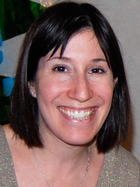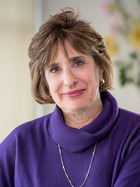Looking for help with a specific type of leukemia? We have pages for Acute Lymphoblastic Leukemia, Acute Myeloid Leukemia, Chronic Lymphocytic Leukemia, Chronic Myelogenous Leukemia, Myelofibrosis, and Myelodysplastic Syndromes.
Get Support
Counseling
Oncology social workers help you cope with the emotional and practical challenges of leukemia. Contact us at 800‑813‑HOPE (4673) or info@cancercare.org.
Learn more about counseling.
Resource Navigation
Learn more about how CancerCare Resource Navigation can help you address barriers to care.
Financial Assistance
Find resources and support to manage your financial concerns. Limited assistance from CancerCare® is available to eligible families for cancer-related costs.
Specialized Programs
CancerCare offers specialized programs to address specific populations and concerns.
Coping Circle Workshops
Virtual educational and supportive workshops led by oncology social workers and qualified co-facilitators. These workshops cover numerous topics and are offered in English and Spanish.
Find Information
Connect Education Workshops
Listen in by telephone or online as leading experts in oncology provide up-to-date information about cancer-related issues in one-hour workshops. Podcasts are also available.
Upcoming Workshops
General Topics
- Veterans and Cancer: Unique Challenges, Mar 6, 2026
- Current Perspectives on Cancer Survivorship, Mar 10, 2026
Podcasts
Leukemia
- What’s New in Precision Medicine, Jan 7, 2026
- Updates from the 2025 American Society of Hematology (ASH) Annual Meeting, Dec 18, 2025
- Highlights from the American Society of Clinical Oncology (ASCO) Annual Meeting — Driving Knowledge to Action: Building a Better Future, Aug 12, 2025
- What’s New in Precision Medicine, May 21, 2025
- Current Perspectives on the Treatment of Relapsed/Refractory Chronic Lymphocytic Leukemia (CLL), Mar 28, 2025
- Updates on CAR T-cell Therapies, Mar 25, 2025
- Update on Chronic Lymphocytic Leukemia (CLL), Feb 21, 2025
- Update from the 2024 American Society of Hematology (ASH) Annual Meeting, Dec 19, 2024
- Update on CAR T-Cell Therapies, Oct 22, 2024
- Highlights from the 2024 American Society of Clinical Oncology (ASCO) Annual Meeting: The Art and Science of Cancer Care from Comfort to Cure, Sep 24, 2024
- Managing Chronic Lymphocytic Leukemia (CLL) and Its Complications, Jun 26, 2024
- For Caregivers: Practical Tips for Coping with Your Loved One’s Chronic Lymphocytic Leukemia (CLL), Jun 13, 2024
- Taking Your Blood Cancer Adherence Treatment on Schedule, Jun 11, 2024
- Current Perspectives on the Treatment of Relapsed/Refractory Chronic Lymphocytic Leukemia (CLL), Jun 6, 2024
- Update on Chronic Lymphocytic Leukemia (CLL), May 29, 2024
- CAR T-Cell Therapy: What’s New, Mar 19, 2024
- Adults Living with Acute Lymphocytic Leukemia (ALL): Treatment Updates, Mar 1, 2024
- New Treatments for Childhood Acute Lymphocytic Leukemia (ALL), Jan 9, 2024
General Topics
- Taking Your Pills on Schedule: Why It Is So Important in Managing Cancer, Jan 27, 2026
- Addressing the LGBTQI+ Health Disparities Gap, Jun 25, 2025
- Children as Caregivers for a Loved One with Cancer, Jun 24, 2025
- Diverse Populations Participating in Decisions About Your Care with Your Health Care Team, Jun 17, 2025
- Current Perspectives on the Future of Cancer Research, Jun 5, 2025
- Understanding How Health Care Disparities May Influence Your Cancer Treatment and Care, Jun 2, 2025
- Cancer & the Workplace: Understanding Your Legal Protections, Apr 30, 2025
- Understanding the Cost of Care & Your Health Care Coverage, Apr 23, 2025
- Managing Eye and Vision Changes Related to Cancer Treatments, Apr 21, 2025
- Trends in Oncology & Treatment Planning: A Guide to Getting the Best Care, Apr 16, 2025
- Coping with Cancer, Mar 12, 2025
- Understanding the Different Names for Biomarker Testing and Their Role in Selecting the Best Treatment for You, Mar 10, 2025
- Understanding the Important Role that Biomarker Testing Plays in Informing the Treatment of Cancer, Mar 3, 2025
- Clinical Trials: How They Transform the Treatment of Cancer, Feb 4, 2025
- Understanding Treatment-Related Skin Toxicity: Practical Tips to Cope with Rash, Dry/Itchy/Peeling Skin and Nail Changes, Jan 17, 2025
- Cancer in the Workplace, Health Insurance, Finances and Returning to School, Dec 13, 2024
- Challenges Young Adults with Cancer Face: Coping Tips, Dec 6, 2024
- Chemotherapy: Novel Approaches to Prevent and Manage Gastrointestinal Treatment Side Effects, Nov 22, 2024
- Caregiving for Your Loved One with Cancer, Sep 23, 2024
- Current Perspectives on Cancer Survivorship, Sep 10, 2024
- Current Perspectives on the Future of Cancer Research, Jun 27, 2024
- How Health Care Disparities May Influence Your Cancer Treatment, Jun 17, 2024
- What’s New in Precision Medicine, Jun 12, 2024
- Caring for Your Loved One with Cancer, May 13, 2024
- Diverse Populations Participating in Decisions about Your Care, Apr 22, 2024
- Managing Eye and Vision Changes Related to Cancer Treatments, Apr 8, 2024
- Understanding the Different Names for Biomarker Testing & Their Role in Selecting the Best Treatment for You, Mar 4, 2024
- Chemotherapy: Novel Approaches to Prevent and Manage Gastrointestinal Treatment Side Effects, Feb 16, 2024
- Understanding the Important Role that Biomarker Testing Plays in Informing the Treatment of Cancer, Feb 12, 2024
- Young Adult Survivorship: Fertility, Sexuality and Intimacy, Feb 9, 2024
- Addressing the LGBTQI+ Health Disparities Gap, Jan 19, 2024
- Challenges Young Adults with Cancer Face: Coping Tips, Dec 15, 2023
- Current Perspectives on Cancer Survivorship, Nov 28, 2023
- Diverse Populations Participating in Decisions About Your Care With Your Health Care Team, Jun 28, 2023
- Understanding Diagnostic Technologies and Biomarkers, Jun 26, 2023
- Addressing the LGBTQI+ Health Disparities Gap, Jun 16, 2023
- Taking Your Pills on Schedule: Its Importance in Managing Cancer, May 24, 2023
- Understanding How Health Care Disparities May Influence Your Cancer Treatment and Care: With Tips and Strategies to Find the Best Cancer Treatment and Health Care Team for You, May 15, 2023
- Current Perspectives on Cancer Survivorship, May 2, 2023
- Taking Your Pills on Schedule: Why It Is So Important in Managing Cancer, May 4, 2022
- Current Perspectives on Cancer Survivorship, May 3, 2022
- Current Perspectives on Cancer Survivorship, Feb 9, 2021
- The 9/11 Community, Cancer & COVID-19, Jan 25, 2021
- Managing the Cost of Living with Cancer, Sep 23, 2020
- Veterans Living with Cancer, Jun 26, 2020
- What are Biosimilars? Understanding Their Role in Cancer Treatment: Current and Future Perspectives, Jun 18, 2020
- Current Perspectives in Cancer Survivorship, Jun 16, 2020
- Cancer and The Workplace: Understanding Your Legal Protections, Mar 25, 2020
- Understanding the Costs of Care and Your Health Care Coverage, Mar 18, 2020
- Joys and Challenges of Pets in Your Home When You Have Cancer, Apr 8, 2019
- Mind Body Techniques to Cope with the Stresses of Cancer, Nov 15, 2017
- Managing Sensory Disruptions During Cancer Treatments, Dec 5, 2016
- Nutrition and Healthy Eating Tips During and After Cancer Treatments, Feb 1, 2016
Publications
Read or order our free Connect booklets and fact sheets offering easy-to-read information about the latest cancer treatments, managing side effects and coping with cancer.
Leukemia
- Treatment Update: Blood CancersNew
- Your Guide to the Latest Cancer Research and Treatments: Highlights From the 2025 Annual Meeting of the American Society of Clinical OncologyNew
- Bone Marrow Transplantation as a Treatment Option: What You Need to Know
- Treatment Update: Acute Myeloid Leukemia
- Treatment Update: Chronic Lymphocytic Leukemia
- Treatment Update: Chronic Myelogenous Leukemia
General Topics
- Coping With Cancer: Tools to Help You LiveNew
- Caregiving for Your Loved One With Cancer
- Talking to Children When a Loved One Has Cancer
- Communicating With Your Health Care Team
- Sources of Financial AssistanceNew
- Finding Resources in Your CommunityNew
- If You've Just Been Diagnosed
- What Can I Say to a Newly Diagnosed Loved One?
- Advice for Caregivers: How Can You Help Yourself?
Ask CancerCare
Every month, featured experts answer your questions about coping with cancer. View all questions and answers.
Leukemia
- Q.
I was diagnosed with CLL in 2003 and have no symptoms. My white cell count is about 120 and my platelets are at 290. My oncologist wants me to take Rituxan to get the counts down. I do not have an enlarged spleen and have not gotten sick. I have been told by my primary doctor that you should treat the symptoms not the counts. How do I get my oncologist to understand this?
A.CLL or, chronic lymphocytic leukemia is the most common adult leukemia. The average age of diagnosis is 65 to 67 years of age, although it is diagnosed in younger adults as well. It is one of four main types of leukemias. Because it is a chronic disease people can go years without treatment, so it is important to monitor the disease for any changes.
It appears you are struggling with different medical opinions. Your doctor suggests focusing on symptoms while your oncologist believes that the elevated counts indicate it is time for treatment. This is a common struggle for patients – what to do when you receive differing medical opinions? There is often uncertainty in which is the best option, and ultimately the decision rests with the patient.
Doctors can suggest, strongly sometimes, treatment options that patients do not feel comfortable with. When that happens it is helpful to open up a dialogue with your doctor where you can explore the rationale behind his/her thinking and you can express your concerns. An open and honest relationship with your health care team (often referred to as a partnership) is important. For many patients this additional knowledge helps them make an informed decision. For oncologists and other members of the health care team, it lets them know about what is important to the patient and how they want to approach his/her disease.
Here are a few additional resources addressing CLL treatment and patient/doctor communication:
- The National Cancer Institute’s Chronic Lymphocytic Leukemia (CLL) Treatment Summary
- CancerCare’s publications, “Doctor, Can We Talk?” Tips for Communicating With Your Health Care Team and Your Health Care Team: Your Doctor is Only the Beginning
- Q.
I'm worried my husband has some ongoing side effects from his treatment for acute lymphoblastic leukemia (ALL). Do you know if there are specialists who treat side effects from treatments?
A.Blood cancers are called hematopoietic cancers and treated by hematologists (doctors who specialize in blood disorders). Blood cancers consist of three types: leukemia, disease of the blood; lymphoma, disease of the lymphatic system; and multiple myeloma, disease of the bone marrow. There are numerous subtypes of all three blood cancers, especially among lymphomas and leukemias. The diagnosis is very important because it will directly impact the treatment options, and different treatments may result in different side effects.
ALL is a cancer of the white blood cells, the cells in the body that normally fight infection. Most cases of leukemia are associated with changes in genes and chromosomes in the cancerous white cells, which is the case for ALL.
Because many standard cancer treatments are very powerful, they also carry a risk of side effects; loss of hair, fatigue and nausea are the most common. Most side effects go away after treatment. However, some treatments can have ongoing and on occasion permanent side effects, which can include neuropathy, “chemobrain” and anemia, among others.
The professionals who make up his treatment team are the best people to address his side effects. His doctor might adjust treatment when side effects are dangerous or harmful. If side effects continue post-treatment, again his treatment team is the best source for help. Your husband may be prescribed medications to help manage side effects, or referred to a specialist who can monitor and treat side effects. Specialists include physical therapists, neurologists, psychiatrists, nutritionists or other specialized health care professionals.
Please take a look at our Connect Education Workshop podcasts that address the side effects of treatment. In addition, CancerCare also offers a number of publications that might be helpful in managing side effects.
Additional resources addressing ALL treatment and side effects include: - Leukemia and Lymphoma Society - National Cancer Institute’s Adult ALL Treatment Summary
- Q.
My 6-year-old son is getting treatment for leukemia. He is getting so much attention right now that his older brother is feeling left out. What can I do?
A.When a child is diagnosed with cancer, it’s a frightening time for the whole family. Unfortunately, it’s not uncommon for siblings to feel like their needs are being neglected. They may feel jealous, angry, frightened, or have other strong emotions.
Here are some tips for helping siblings manage:
- Make time to talk to individual siblings. Ask them how they are doing, and take time to really listen to them.
- Invite siblings to join you in fun activities. Siblings need to laugh, have fun, and be themselves, especially during this difficult time.
- Send emails or cards to siblings to let them know you are thinking of them.
- Encourage siblings to choose a special support person. Then, help them connect with that person. Keep in mind that they may want you to be that person.
The key is not to expect that siblings will just “get over” these feelings with time. In order to maintain their strength, courage and hope, they need your love and support more than ever.
These books may be a useful when helping children who have a sibling with cancer:
- Life Isn’t Always A Day At The Beach, by Pam Ganz
- What is Cancer, Anyway? Explaining Cancer to Children of All Ages, by Karen Carney
- Chemo Crusader and the Cancer Fighting Crew, by Melodie Homer
You can also visit SuperSibs!, an organization providing support to siblings of children with cancer.
- Q.
About six months ago, my five-year-old daughter was diagnosed with leukemia and I had to leave work to take care of her. Now, I'm struggling financially and need help paying the bills. Where can I get help?
A.Children with cancer typically undergo an intense treatment schedule and their care can become a full-time job in itself for the parent or guardian. Unexpected expenses can range from uncovered treatment costs to transportation and childcare, as well as those of daily living, which also especially difficult to meet when there is a loss of income.
CancerCare, The Leukemia and Lymphoma Society, and the National Children’s Cancer Society, offer limited financial assistance for some treatment and treatment-related expenses for eligible families. The American Childhood Cancers Organization also provides a listing of possible resources.
Ask the social worker at your child’s treatment center for information on organizations in your community that assist children with serious illnesses. In addition, many large treatment centers have special funds for children to help defray the cost of treatment and related costs. Make sure you inquire about whether your treatment center has such a fund, and how you might qualify.
Finding help with the expenses of daily living is more challenging. A possible resource includes the 211 referral line of your local United Way which provides links to community programs that may offer financial assistance or practical help. You can also try negotiating payment plans for your monthly bills with your utility company, phone provider and other creditors, who may also offer assistance programs to people in need.
For additional guidance, please read our fact sheet, Sources of Financial Assistance.
- Q.
One of my best friends has had a bone marrow transplant for leukemia and will hopefully be getting out of the hospital soon. I'm looking for a website where people can sign up to sit with her over the next few months and take her to doctor appointments. Do you have any suggestions?
A.The transition home after a bone marrow transplant can be a time of great readjustment. There may be many outpatient medical visits and it will likely take time for the patient to return to normal levels of activity. It can be helpful during this time to organize a support team to assist with the many practical aspects of returning home. However, friends and family may not be aware of the needs of a loved one recovering from a transplant or know how best to help. Luckily there are resources that can help loved ones organize help and support for an individual recovering from a bone marrow transplant, or any cancer treatment.
My Cancer Circle™ is a free online private support community for caregivers of people facing cancer. At mycancercircle.net you can easily create a community and coordinate volunteer activities that will meet your friend’s needs as she recovers from her bone marrow transplant, such as preparing meals or arranging transportation to medical appointments. By creating a support community you can inform friends of what tasks need to be done and friends can sign up for the activities they can best assist with. My Cancer Circle is also a great way to quickly and easily keep your online support community informed of recovery updates, milestones reached, photos, or other information.
You can also find additional information about recovering from a bone marrow transplant through The National Marrow Donor Program and The Bone Marrow Foundation.
Featured Resources
Magnolia Meals at Home
A meal delivery program that helps patients by providing nourishing meals to households affected by cancer. Is currently available in and around Woodcliff Lake, NJ and Andover, MA, Raleigh-Durham, NC and New Haven, CT (as well areas in New York, New Hampshire and Boston, MA). For more information please visit magnoliamealsathome.com or contact Kathy Nugent, LCSW at 800-813-4673, ext. 6809.

Know AML
Know AML is the first global education and awareness initiative that provides patients and caregivers with the information, resources, and support they need to deal with acute myeloid leukemia (AML). Visit know-aml.com
Browse all CancerCare services
by Diagnosis
by Topic
Additional Resources
For Leukemia
Blood & Marrow Transplant Information Network
Blood Cancer United (formerly Leukemia & Lymphoma Society)
Bone Marrow and Cancer Foundation
Children’s Leukemia Research Association
DKMS We Delete Blood Cancer
Know AML
National Bone Marrow Transplant Link
NMDPsm
The Max Foundation
General Cancer Resources
American Cancer Society
Medical Information
National Cancer Institute
National Comprehensive Cancer Network® (NCCN®) – NCCN Guidelines for Patients®

 Answered by
Answered by  Answered by
Answered by  Answered by
Answered by  Answered by
Answered by